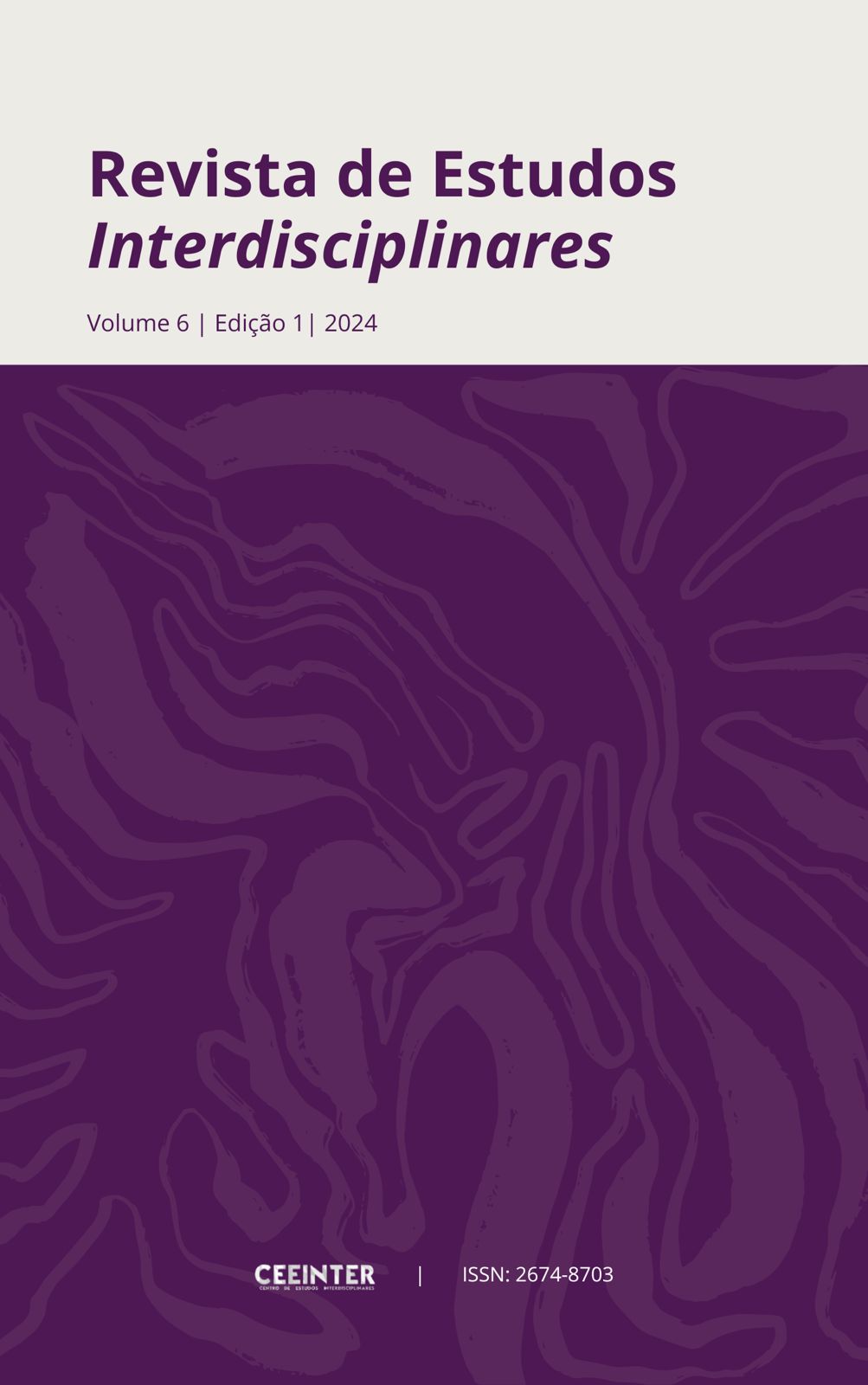O CONCEITO DE TERRITÓRIO NO ENSINO DE GEOGRAFIA
RELATO DE EXPERIÊNCIA NO ESTÁGIO SUPERVISIONADO
Visualizações: 442DOI:
https://doi.org/10.56579/rei.v6i1.1274Keywords:
School Geography, Supervised internship, Teaching Geography, TerritoryAbstract
This article presents the results of a theoretical research on School Geography in the schooling process and the importance of teaching Geography through geographical concepts, which supported a practical teaching activity. Understanding the importance of insertion and epistemological deepening in geography teaching practices, the text seeks, through theoretical reflections, the inclusion of the concept of Territory to investigate population dynamics in the formation of Brazilian territory in the classroom. Consequently, it presents the supervised internship experience developed in the High School of the Geography Teaching Degree course at the Federal University of Rio Grande – FURG. The concept of Territory presented aims to understand the concrete and functional relationships established between social groups and the Geographic Space, not limiting itself to this but also understanding it from cultural relationships and the plurality of Brazilian territory, given its peculiar characteristics in area size, ecosystemic, and cultural diversity. It was found that, from the teaching practice developed during the internship, it was possible to expand the students' understanding of the very concept of territory and the territorial formation of Brazil, allowing discussion on the categories of population and territory, as well as contemporary migratory dynamics.
Downloads
References
BUSTAMANTE, Ana Maria Goulart. SILVA, Jorge Kleber Teixeira. Diversidade e patrimônio cultural. In: FIGUEIREDO, Adma H. de (Org.) Brasil: uma visão geográfica e ambiental no início do século XXI. Rio de Janeiro: IBGE, 2016. 435p. Disponível em: https://biblioteca.ibge.gov.br/visualizacao/livros/liv97884.pdf. Acessado em: 10 abr. 2023.
CAVALCANTI, Lana de Souza. Cotidiano, Mediação Pedagógica e Formação de Conceitos: uma contribuição de Vygotsky para o ensino de Geografia. Cad. Cedes, Campinas, v. 25, n. 66, p. 185-207, maio/ago de 2005. Disponível em: http://www.cedes.unicamp.br. Acessado em: 10 de out./2022.
CAVALCANTI, Lana de Souza. Pensar pela Geografia: ensino e relevância social. Goiânia: C&A Alfa Comunicação, 2019.
CLAVAL, P. O território na transição da pós-modernidade. GEOgraphia, v. 1, n. 2, p. 7-26.
FOUCAULT, Michel. Vigiar e punir. Leya, 2014.
FIGUEIREDO, Adma H. de. Formação Territorial. In: FIGUEIREDO, Adma H. de (Org.) Brasil: uma visão geográfica e ambiental no início do século XXI. Rio de Janeiro: IBGE, 2016. 435p. Disponível em: https://biblioteca.ibge.gov.br/visualizacao/livros/liv97884.pdf. Acessado em 10 abr. 2023.
FRANZ, Juliana Cristina et al. Imigração e colonização alemã no Vale do Taquari/RS: as descontinuidades e as continuidades do processo de identificação territorial. 2020. Tese de Doutorado. Universidade Federal de Santa Maria.
GIL, A.C. Métodos e técnicas em pesquisa social. 6 ed. São Paulo: Atlas, 2008.
GODOI, Emília Pietrafesa de. Territorialidade: Trajetória e Usos do Conceito. Raízes. v.34, n.2, jul-dez. 2014. Disponível em: http://revistas.ufcg.edu.br. Acesso em: 19. mai. 2023.
HAESBAERT, Rogério. Des-territorialização e identidade: a rede “gaúcha” no Nordeste. Niterói: EdUFF, 1997.
HAESBAERT, Rogério. O mito da desterritorialização: Do “fim dos territórios” à multiterritorialidade. Rio de Janeiro: Bertrand Brasil, 2004.
KAERCHER, N. A. A geografia escolar: gigante de pés de barro, comendo pastel de vento num Fast Food? Terra Livre: Presidente Prudente, v 23, n. 28, jan-jun. p. 27-44. 2007.
PIMENTA, Selma Garrido; LIMA, Maria Socorro Lucena. Estágio e Docência: diferentes concepções. Revista Poíesis, v. 3, n. 3-4, p. 5-24. 2006.
REIS JUNIOR, Dante F. Costa; SILVA, Barbara Mayanne; FIGUEREIDO, Evelyn L. Dias. “Natureza da ciência geográfica”: diagnóstico e possibilidades de inserção de epistemologia no ensino escolar e na formação de professores de geografia. Ciênc. educ. Bauru, v. 24, n. 1, p. 191-208. 2018.
RISÉRIO, Antonio. A cidade no Brasil. São Paulo: Editora 34, 2013.
SANTOS, Milton. A Natureza do Espaço: Técnica, Razão e Emoção. 3 ed. São Paulo: EdUSP, 2006.
SANTOS, Milton; SILVEIRA, María Laura. Brasil: Território e Sociedade no Início do Século XXI. Rio de Janeiro: Record, 2001.
SAQUET, M. A. A relação espaço-tempo e a apreensão do movimento em estudos territoriais. In: Encontros de Geógrafos da América Latina, 2005, 10. Anais. São Paulo, 2005. Disponível em: http://www.scielo.br/scielo.php?script=sci_nlinks&pid=S1679-3951201800040078800030&lng=en. Acessado em: 19 de out. 2019.
SAQUET, Marcos Aurelio. Os tempos e os territórios da colonização italiana: o desenvolvimento econômico da Colônia Silveira Martins, RS. EST Edições, 2003.
ZINKE, I.A.; GOMES, D. A prática de observação e a sua importância na formação do professor de geografia. EDUCERE: XII Congresso Nacional de Educação. Puc. Paraná. 2015. Disponível em: http://educere.bruc.com.br/arquivo/pdf2015/18655_7820.pdf. Acesso em 18 abr. 2019.
Downloads
Published
How to Cite
Issue
Section
License
Copyright (c) 2024 Interdisciplinary Studies Journal

This work is licensed under a Creative Commons Attribution 4.0 International License.
The Journal of Interdisciplinary Studies adopts the Creative Commons Attribution 4.0 International License (CC BY 4.0), which allows for sharing and adapting the work, including for commercial purposes, provided proper attribution is given and the original publication in this journal is acknowledged.


